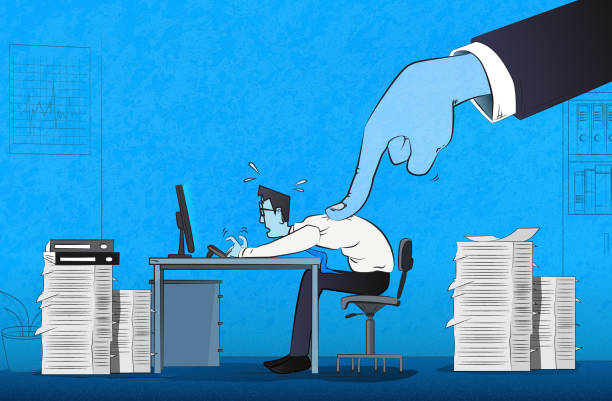#mymentalhealthmatters
When I was younger, I thought that one could just quit if they didn’t like their job. The older I get, the more I understand that it’s not that easy. We have bills to pay and some of us have people who depend on them. So what can we do if our workplaces are making us depressed?
Do we stick it out or is there a solid solution?
Good morning Millenial News Readers, we’re back again to discuss signs of workplace depression and how to deal with it. Remember that the more informed you are, the better you are at handling depression or helping those around you.
Work Stress vs Work Depression
The major difference between the two is that work stress ends after the stressful period is over or the task complete. On the other hand, depression persists even on days when no one’s breathing down your neck and you have little to no tasks.
Signs of Workplace Depression
Take a look at the signs below and access yourself. Don’t worry if you tick off more than a few, we’re here to help and we’ll guide you on the next step.
- You feel anxious whenever you think about your work.
- Nothing interests you anymore, not even tasks you previously liked.
- You secretly have sudden crying spells at work.
- You arrive late at work and leave early.
- Constant naps are something you’re accustomed to.
- You don’t care about how you look when you’re going to work.
- Constant headaches are the norm for you.
- Fellow employees complain that you’re withdrawing from them.
Factors Contributing to Workplace Depression
Even if this is your story, don’t be discouraged. Read on to identify the contributing factors to your workplace depression.
- Working in a toxic environment.
- You are overworked and underpaid.
- Working irregular hours of the day and night.
- You live in constant fear of losing your job.
- Imposter syndrome that makes you feel like you’re not good enough.
- You’re constantly criticized for your work.
- Small mistakes are highlighted and highly criticized.
- Workplace bullying by fellow employees.
Once you identify the root of the problem, finding a solution will be much easier.
3 Ways of Dealing With Work Depression
Sometimes the depression signs are as clear as day, but many times, the depressed employee masks it well. Some reasons you might be doing this include:
- You fear your insurance won’t cover the cost.
- You’re concerned about losing your job.
- You don’t want your workmates to know and treat you differently.
However, denying your condition does nothing to help you. You have to acknowledge it but also know that you’re more than it. Here are 3 ways of dealing with work depression that might help.
- Request a Flexible Work Schedule
Speak to your employer about having a flexible schedule. This might mean coming into work an hour later or leaving before. Discuss about weekends and how often you would want to come in. Having a flexible schedule will make you more productive as you’ll be well-rested and you’ll have spent time with the people who bring joy to your life.
- Confide in a Co-Worker or Your Manager.
Most of the time, depressed employees are passed off as “lazy”. If managers perceive them like this, the depressed employees stand at a risk of losing their jobs. That’s why it’s important to let someone in the office know what they’re going through. This way, they can be more compassionate and gentle with you.
- Seek Professional Help
According to Mental Health America, nearly 15% of depressed people die by suicide. We don’t want to lose you, and that’s why we’re running the mental health campaign.
We encourage you to seek help. Therapy sessions can however be expensive, but there are other great alternatives.
One of them is better help, it’s a foundation made of online therapists and is much more affordable than in-office therapist sessions. Some perks of Better Help include:
- You can switch therapists if you don’t like the one assigned to you.
- You can pick a therapist of color.
- You can reach your therapist through text, video, or audio at all business hours.
- You’ll have 30-45 minutes video or audio calls at least once a week.
If you’re in a toxic work environment, you can explore your options and leave as soon as you get something else. That’s it for today, thanks for stopping by, just know that you’re not alone and we hope you’ll get better.
#mymentalhealthmatters
#mentalhealthawarenessmonth
#themillenialnews
Millie ❤❤❤

